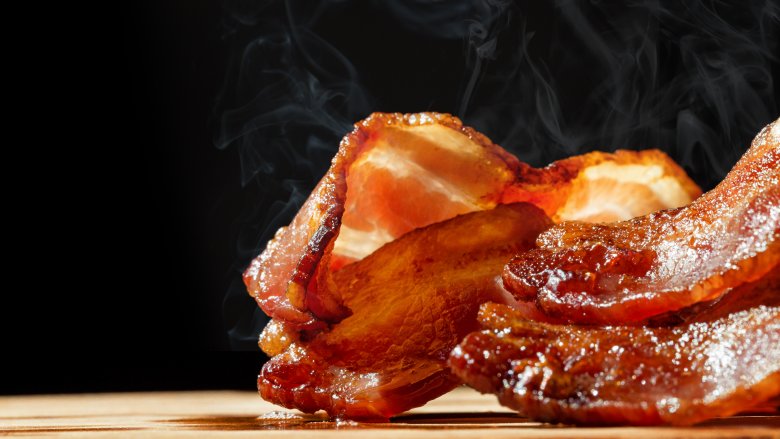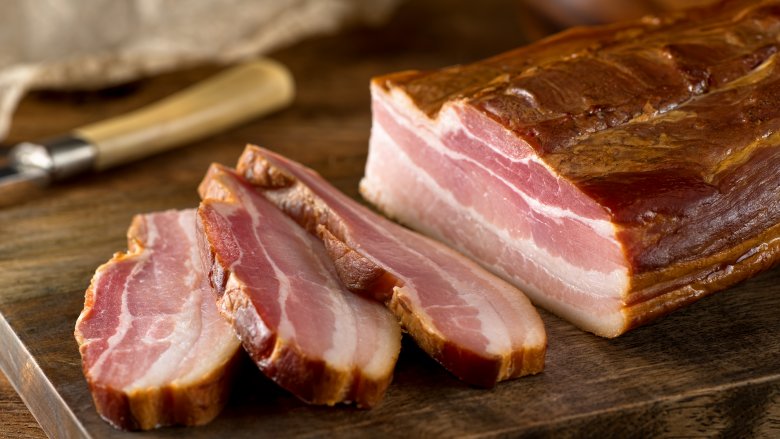The Truth About Cured Vs. Uncured Bacon
There are few things so constant in the world of food than the agreement that bacon is pretty much the best-tasting thing ever. But if you've ever tried to decipher the bacon packaging at the supermarket, you may have found yourself wondering what the difference is between cured and uncured bacon.
Usually, we're so excited to get home and fry it up that we don't spend too much time investigating the different packages, but one word that does tend to stand out is cured — or uncured. But what does it all mean? Does it really make a difference which one you buy?
How does bacon get cured?
Regular bacon is cured with sodium nitrite, a type of salt (via The Splendid Table). It's used to change the chemistry of the bacon so that it's harder for bacteria, like Clostridium botulinum, to grow. According to the CDC, Clostridium botulinum can make a toxin that results in botulism poisoning, so it's a good idea to avoid it if possible. Also, curing bacon helps preserve the fat for a longer period of time, and it gives bacon that pink color we're so used to seeing. American-style bacon is also usually smoked.
Combine all of these techniques, and you get your classic supermarket bacon, ready to be fried up for Sunday breakfast or cut into lardons to make boeuf bourguignon. But bacon has a reputation for being unhealthy, and many people turn to uncured bacon as an alternative — which, as it turns out, might not make that much sense after all.
What is uncured bacon?
Uncured bacon is often labeled as such, or has packaging claiming that it's nitrate- and nitrite-free. Surprisingly, though, uncured bacon does actually contain nitrite.
Regular bacon is made with synthetic sodium nitrite. While uncured bacon is also made with nitrite, it's the kind that's made by converting the nitrate in celery or beets (via Washington Post).
However, just because it's derived from vegetables doesn't mean that the nitrite in uncured bacon is any healthier.
If your bacon is cured with celery, the USDA requires that it be labeled "uncured" and "no nitrates or nitrites added." But, puzzlingly, the amount of naturally-derived nitrites in uncured bacon aren't regulated, which means that theoretically, it could contain more nitrites — one test showed that a popular brand of uncured bacon contained almost three times (!) more nitrite than conventionally-cured bacon (via Cook's Illustrated).
The science also indicates that, just like regular cured bacon, regular consumption of uncured bacon is linked to high rates of colorectal cancer.
It's confusing and a little scary, but there is one constant: Bacon is always delicious. Enjoy it in moderation, and the rest is up to fate.


